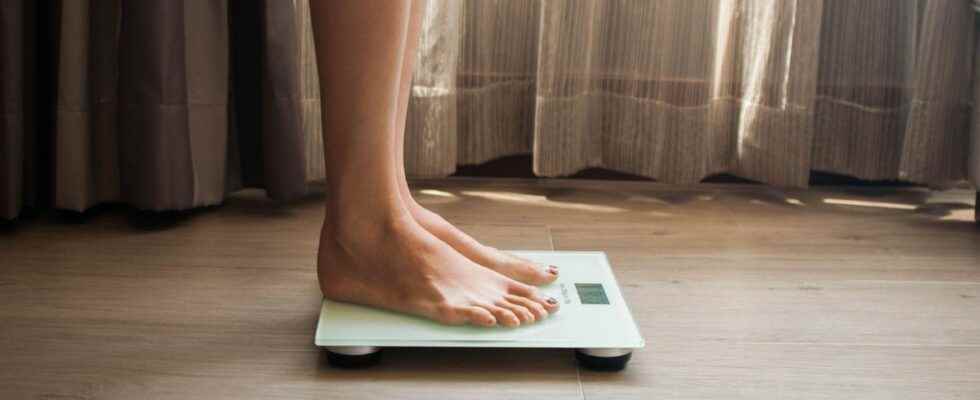Published on
Updated
Reading 2 mins.
in collaboration with
Dr Odile Bagot (Gynecologist-obstetrician)
On the occasion of World Menopause Day this October 18, a new Australian study allows us to take stock of the weight gain associated with it and especially how to avoid it. Something to approach this period with more serenity.
Women take on average between 5 and 7 kilos just before menopause. If this observation does not enchant you, know that it is not inevitable, if we are to believe a recent study by the University of Sydney. Indeed, in a publication of theInternational Journal of Obstetrics & Gynecologyresearchers have, it seems, found the reasons for this weight gain, and especially how it is possible to guard against it with a simple change in eating habits: increase your protein intake and practice physical activity would probably be enough to keep the line.
Why do we experience weight gain before menopause?
For Dr. Odile Bagot, gynecologist, member of our committee of experts, and author of Menopause don’t panic, this effect is not hormonal, as she explains:
“From the age of 35-40 in women, catabolism (loss of matter) will be greater than anabolism (the factory) whether for bone, skin, muscles . However, this loss of muscle mass leads to automatic weight gain that can be grouped under 4 reasons” she states
A physiological reason above all, but not only. Age is responsible for slight transformations in premenopausal women:
“If you do not change your diet or the frequency of activity, the loss of muscle mass gives way to weight gain. But there are also other phenomena: in particular a derivation, called splanchnic capture of amino acids, which means that when a woman over 40 eats protein, the body will divert these amino acids to the organs that must live the most. a long time the liver the spleen the heart. Physical activity tends to decline as well. Finally, the taste evolves, and makes us have less appetite for meats and proteins with age” she shares.
Change your habits to avoid the pounds
Based on this observation, the researchers nevertheless have good news: “Very small dietary changes in terms of prioritizing protein, reducing fats and carbohydrates, and physical activity could make a big difference in the long run.”, addresses Professor David Raubenheimer, co-author of the study. A hypothesis that the researchers want to confirm with a prospective study of around 1,000 women aged 45 to 50. Thus, a diet adapted to premenopausal women should:
- Increase the proportion of protein by about 3% of daily energy intake;
- Reduce total energy intake by 5-10% per day.
“For many, cutting out a bag of crisps, a glass of sugary drink or the like and ensuring the daily diet contains high quality animal or plant protein will do the trick.“, Professor Simpson concluded.
A decision that seems quite doable.
